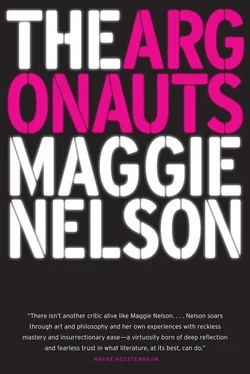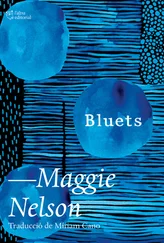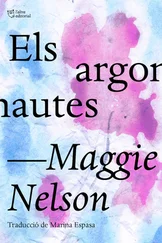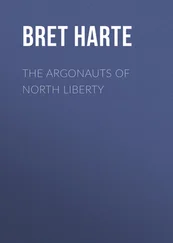What if where I am is what I need? Before you, I had always thought of this mantra as a means of making peace with a bummer or even catastrophic situation. I never imagined it might apply to joy, too.
In The Cancer Journals , Audre Lorde rails against the imperative to optimism and happiness that she found in the medical discourse surrounding breast cancer. “Was I really fighting the spread of radiation, racism, woman-slaughter, chemical invasion of our food, pollution of our environment, the abuse and psychic destruction of our young, merely to avoid dealing with my first and greatest responsibility — to be happy?” Lorde writes. “Let us seek ‘joy’ rather than real food and clean air and a saner future on a liveable earth! As if happiness alone can protect us from the results of profit-madness.”
Happiness is no protection, and certainly it is not a responsibility. The freedom to be happy restricts human freedom if you are not free to be not happy . But one can make of either freedom a habit, and only you know which you’ve chosen.
The wedding story of Mary and George Oppen is one of the only straight-people stories I know in which the marriage is made more romantic by virtue of its being a sham. Here is their story: One night in 1926, Mary went out on a date with George, whom she knew just a little from a college poetry class. As Mary remembers it: “He came for me in his roommate’s Model T Ford, and we drove out to the country, sat and talked, made love, and talked until morning…. We talked as we had never talked before, an outpouring.” Upon returning to their dorms in the morning, Mary found herself expelled; George was suspended. They then took off together, hitchhiking on the open road.
Before meeting George, Mary had decided firmly against marriage, considering it to be a “disastrous trap.” But she also knew that traveling together without being married put her and George at risk with the law, via the Mann Act — one of the many laws in U.S. history ostensibly passed to prosecute unequivocally bad things like sexual slavery, but which in actuality has been used to harass anyone whose relationships the state deems “immoral.”
So in 1927, Mary got married. Here is her account of that day:
Although I had a strong conviction that my relationship with George was not an affair of the State, the threat of imprisonment on the road frightened us, so we went to be married in Dallas. A girl we met gave me her purple velvet dress, her boyfriend gave us a pint of gin. George wore his college roommate’s baggy plus-fours, but we did not drink the gin. We bought a ten-cent ring and went to the ugly red sandstone courthouse that still stands in Dallas. We gave my name, Mary Colby, and the name George was using, “David Verdi,” because he was fleeing from his father.
And so Mary Colby marries David Verdi, but she never precisely marries George Oppen. They give the state the slip, along with George’s wealthy family (who by this point had hired a private eye to find them). That slip then becomes a sliver of light filtering into their house for the next fifty-seven years. Fifty-seven years of baffling the paradigm, with ardor.
I have long known about madmen and kings; I have long known about feeling real. I have long been lucky enough to feel real, no matter what diminishments or depressions have come my way. And I have long known that the moment of queer pride is a refusal to be shamed by witnessing the other as being ashamed of you .
So why did your ex’s digs about playing house sting so bright?
Sometimes one has to know something many times over. Sometimes one forgets, and then remembers. And then forgets, and then remembers. And then forgets again.
As with knowledge, so too, with presence.
If the baby could speak to the mother, says Winnicott, here is what it might say:
I find you;
You survive what I do to you as I come to recognize you as not-me;
I use you;
I forget you;
But you remember me;
I keep forgetting you;
I lose you;
I am sad.
Winnicott’s concept of “good enough” mothering is in resurgence right now. You can find it everywhere from mommy blogs to Alison Bechdel’s graphic novel Are You My Mother? to reams of critical theory. (One of this book’s titles, in an alternate universe: Why Winnicott Now? )
Despite his popularity, however, you still can’t procure an intimidating multivolume set titled The Collected Works of D. W. Winnicott . His work has to be encountered in little bits — bits that have been contaminated by their relationship to actual, blathering mothers, or by otherwise middlebrow venues, which prohibit any easy enshrinement of Winnicott as a psychological heavyweight. In the back of one collection, I note the following sources for the essays therein: a presentation to the Nursery School Association of Great Britain and Northern Ireland; BBC broadcasts to mothers; a Q&A for a BBC program titled Woman’s Hour; conferences about breast-feeding; lectures given to midwives; and “letters to the editor.”
Such humble, contaminated sources are surely part of the reason why, in Iggy’s first year of life, Winnicott was the only child psychologist who retained any interest or relevance for me. Klein’s morbid infant sadism and bad breast, Freud’s blockbuster Oedipal saga and freighted fort/da , Lacan’s heavy-handed Imaginary and Symbolic — suddenly none seemed irreverent enough to address the situation of being a baby, of caretaking a baby. Do castration and the Phallus tell us the deep Truths of Western culture or just the truth of how things are and might not always be? It astonishes and shames me to think that I spent years finding such questions not only comprehensible, but compelling.
In the face of such phallocentric gravitas, I find myself drifting into a delinquent, anti-interpretive mood. In place of a hermeneutics we need an erotics of art . But even an erotics feels too heavy. I don’t want an eros, or a hermeneutics, of my baby. Neither is dirty, neither is mirthful, enough.
On one of the long afternoons that has since bled into the one long afternoon of Iggy’s infancy, I watch him pause on all fours at the threshold to our backyard, as he contemplates which scraggly oak leaf to scrunch toward first with his dogged army crawl. His soft little tongue, always whitened in the center from milk, nudges out of his mouth in gentle anticipation, a turtle bobbing out of its shell. I want to pause here, maybe forever, and hail the brief moment before I have to jump into action, before I must become the one who eliminates the inappropriate object , or, if I’m too late, who must harvest it from his mouth.
You, reader, are alive today, reading this, because someone once adequately policed your mouth exploring. In the face of this fact, Winnicott holds the relatively unsentimental position that we don’t owe these people (often women, but by no means always) anything. But we do owe ourselves “an intellectual recognition of the fact that at first we were (psychologically) absolutely dependent, and that absolutely means absolutely. Luckily we were met by ordinary devotion.”
By ordinary devotion, Winnicott means ordinary devotion. “It is a trite remark when I say that by devoted I simply mean devoted.” Winnicott is a writer for whom ordinary words are good enough.
As soon as we moved in together, we were faced with the urgent task of setting up a home for your son that would feel abundant and containing — good enough — rather than broken or falling. (These poeticisms come from that classic of genderqueer kinship, Mom’s House, Dad’s House ) But that’s not quite right — we knew about this task beforehand; it was, in fact, one of the reasons we moved so quickly. What became apparent was the urgent task specifically before me: that of learning how to be a stepparent. Talk about a potentially fraught identity! My stepfather had his faults, but every word I have ever uttered against him has come back to haunt me, now that I understand what it is to hold the position, to be held by it.
Читать дальше












